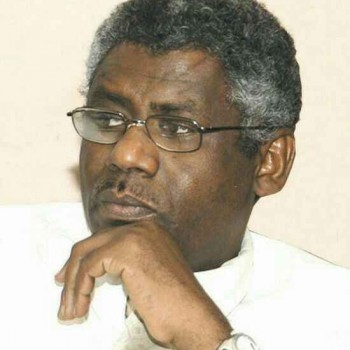
As I see it
1
Many people raised eyebrows when President Al-Burhan decided to move out of the headquarters of the army General Command. They doubted the usefulness of his departure at this particular time when battles raged across Khartoum. However, as the days passed and the achievements of the departure became clear, everyone realised that the idea was more than brilliant, achieving what no one could have imagined on both the political and military fronts. We will delve into this later.
2
Internally, there was a widespread response to the President’s movements in the various cities he visited, leading to the continued and escalating popular momentum around the army. This was the most significant message to the opposition inside and the external supporters of the opposition, who have been asking where the Sudanese people stand—whether with the invading rebels or with the Sudanese army defending its dignity. The picture became clear to everyone who could see and hear.
3
Externally, President Al-Burhan started a continuous interaction. He visited five influential countries to garner support for Sudan’s positions and clarify what was happening. The image had been tarnished in the world to the extent that no country could condemn rebels who killed, raped, and burned the capital city of the state, which appears to be strange. This was closer to a conspiracy than to a responsible political position that cares about the sovereignty of nations and stands in solidarity with them against rebellious terrorist groups. The meetings held by the President in those countries made it clear that he was determined to end the rebellion (by hook or crook). This clear message stifled the flood of initiatives that poured into the regional arena since the beginning of the crisis without a clear horizon. The Saudi-American initiative is the only initiative recognised by the world and supported by the region, which was thought to be capable of ending the war. However, the rebel militia deliberately aborted it by refusing to implement any of its provisions. Sudan’s commitment to the initiative significantly impacted domestic and international public opinion. The President continued to ask all the presidents he met whether they would accept rebels occupying the homes of their citizens in their capitals. Without exception, their answers were a “big no” and they confirmed that they would fight the rebels politically and militarily.
4
The President concluded his internal and regional tours, dominating the news and forcing the opposition and rebels into a tight corner. He defused all their previous moves, and they ceased political action. The opposition and its rebels became vocal in talk shows and satellite channels, excelling in creating heroic tales through fabricated videos and artificial intelligence techniques.
5
Today, President Al-Burhan is heading to the United Nations to deliver Sudan’s speech before the world. The basic outlines of the speech have become clear thanks to the previous sessions on the Sudanese crisis, where the Sudanese envoy in the UN delivered several speeches, and through the United Nations Security Council session addressed by Volker. Suppose the world is interested in seeing peace in Sudan. In that case, the President will request the world to hold the rebel militia accountable for implementing what they signed in the Jeddah agreement, witnessed by the world. The absent world cannot turn a blind eye to the genocide in Genaina. Here, the government’s statement is supported by the US government and dozens of human rights organisations that document all the elements of genocide and atrocities committed by the militias. The world and anyone with a conscience will have a chance to correct their stance on the militias, especially as the crimes stand at the doorstep of international justice.
6
The world must hear from President Al-Burhan about the atrocities committed daily by the rebel militia, which will naturally lead to the demand by Sudan to classify these forces as a terrorist organisation, just as Britain did with Wagner. The militia is Sudan’s own ISIS. What did ISIS do? They kill, rape, loot, and burn. This is exactly what the Rapid Support Forces (RSF) militias are doing now. There is no difference. If the world’s justice is not manifested in classifying these militias as a terrorist group, many people will continue to doubt the distorted standards of justice spoken of by the world for several years.
7
President Al-Burhan must reveal to the world the lies spreading about relief and humanitarian aid. The world, which pledged one billion and six hundred million ($1.6b) dollars at the Geneva conference over four months ago, has only delivered two hundred and fifty million ($2.5m) dollars to date.
8
The President’s speech at the United Nations will reaffirm the legitimacy of the political and military institutions currently governing the country and managing its internal and external affairs. This will render any talk of a fictitious legitimacy or international recognition of militias as mere illusions. It will also end claims of legitimacy by a group that believes it has a right to rule the country by claiming guardianship over the December Revolution. It will also thwart the dreams of the scattered civil society organisations, some of whose members are eager to establish an exile government without any domestic or regional popular support.



